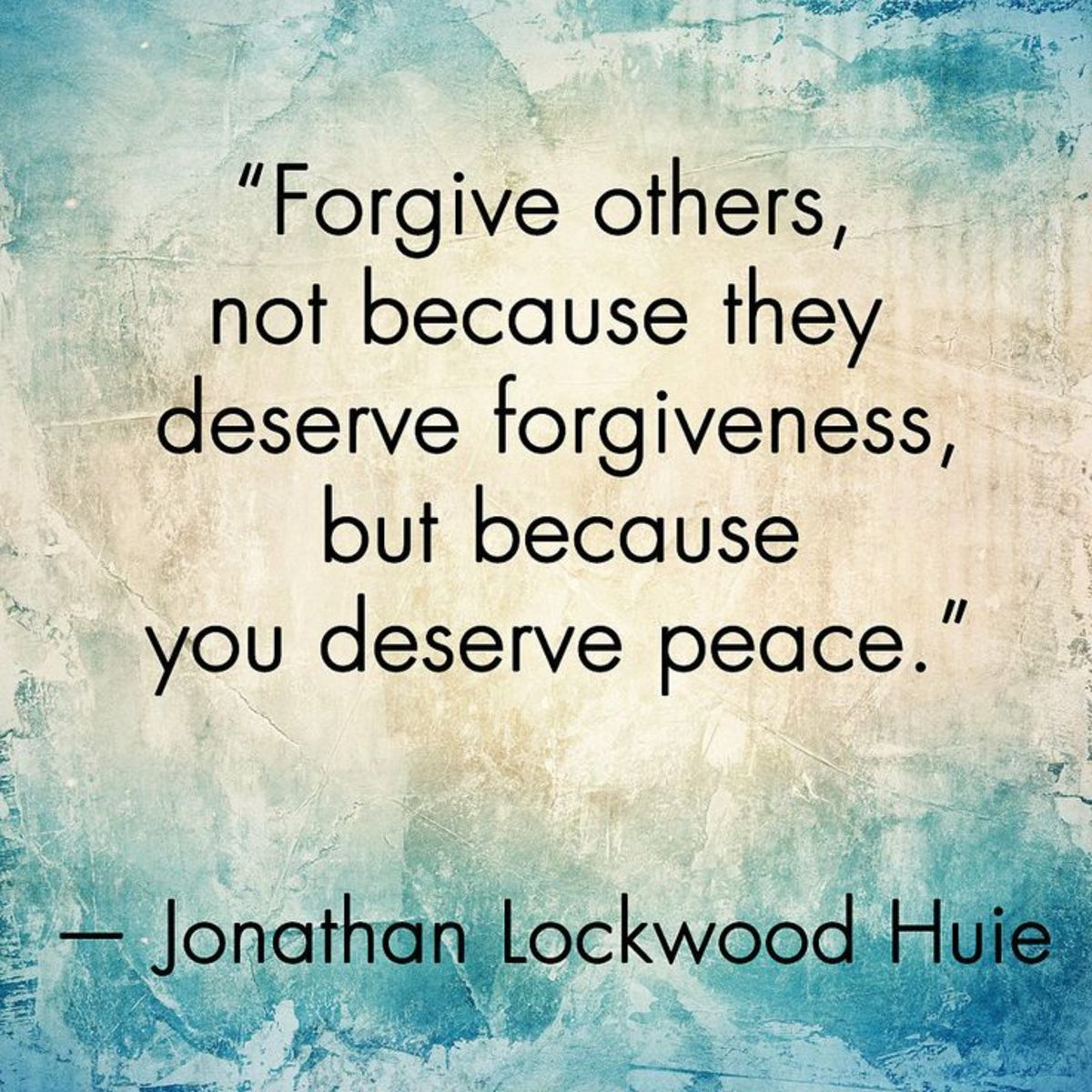8 Reasons Why You Should Forgive Others
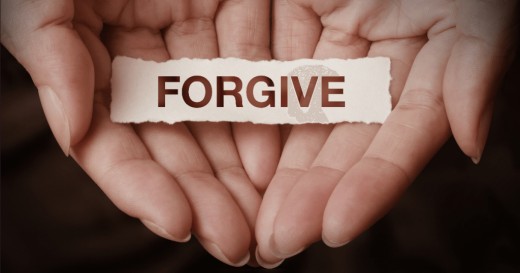
There are many things we encounter in life that aren’t very palatable. Sometimes we wish the situations we find ourselves could change or perhaps people should change so we could be happy. But when either of these two never change, we become mad, grumpy, grouchy and, even sometimes, unforgiving.
The truth is, life is full of challenging and problematic situations as well as people. We just have to learn how to get around such situations and such people so we can move on with our lives. It doesn’t help anybody when he or she decides to remain unforgiving.
Really, the problem is not the problem itself or the people that offend us, the real problem is our reaction—how we choose to deal with the problem—that’s what either exacerbates the problem or mitigates it.
It’s not going to derive you any benefit when you choose not to forgive people. We are going to consider some salient reasons why you should forgive people.

1. It’s a divine command
God is very strict on the issue of forgiveness; he first gives a divine order that says to forgive one another (Eph.4:32, Col. 3:13), and then gives the ultimate repercussions that’ll follow if one decides to not obey the instruction, as stated by Jesus in Matt. 6:15, “if you do not forgive men their sins, your Father will not forgive your sins.”[i] As long as you choose to remain unforgiving, you sure do have a discord to settle with God.
Now, God didn’t just tell us to forgive, he tells us how we’re supposed to do it. In Eph. 4:32, it says, “…forgiving each other, just as in Christ God forgave you.” Well, that begs the question, ‘how does God forgive?’ We see that in Isaiah 43:25 where God says, “I, even I, am he who blots out your transgressions, for my own sake, and remembers your sins no more.”
That tells us that God doesn’t just forgive, he forgets, too. But what does it mean to forget? In this context, it means to put something out of focus. And that’s so instructive because the best way to handle offence is to put it out of focus. To forget also means to stop talking, thinking, or writing about it, and if it comes up in your mind again, choose to not dwell on it. Distract yourself by talking, thinking and focusing your mind on something else.
[i] See Matthew 6:15.
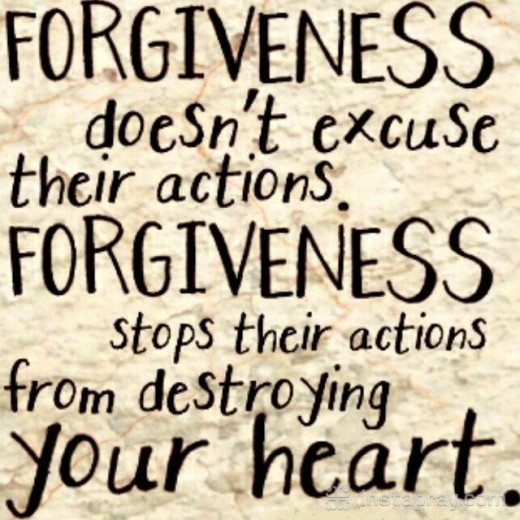
2. It benefits you more than it does the other person
In other words, it’s more of a selfish decision than it is a selfless decision. The law of karma is very salient when it comes to the issue of forgiveness.
Having learnt that God will not forgive us if we don’t forgive other people (Matt. 6:15), it’s also important to note that even when we choose to forgive people, and then God decides to forgive us, too; he’ll only do so to the degree to which we forgave those who offended us.[i] When it comes to the issue of forgiveness, you can only receive as much as you give.
[i] See Matthew 6:12.
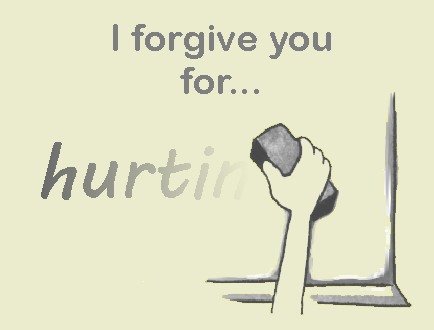
3. It doesn’t mean you accept the person’s action
Un-forgiveness doesn’t alleviate the perpetrator of the crime he committed nor does it excuse the offender of his offence, it only alleviates you of the unnecessary emotional responsibility of having to hate, resent and hold grudges with someone who doesn’t even care. It means you’re not going to let it stop you from making progress in life.
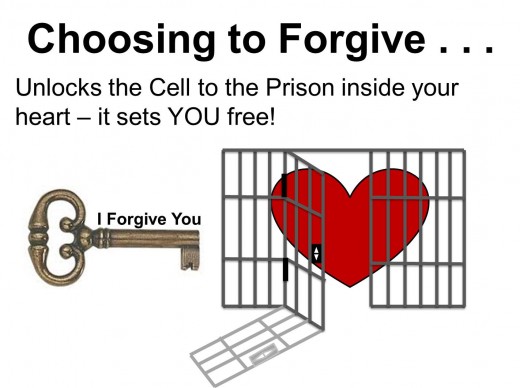
4. It frees you and makes you happy
Do you know that un-forgiveness is hard work? You’d have to deal with feeling sorry for yourself thinking about someone every day, crying inner tears, hating someone who doesn’t care, feeding your soul with toxicity every day, so much that it cheats you of happiness and true inner freedom because you decided to hold on to heavy emotional baggage. Really, life just feels better when you can let go of the past and focus on what’s ahead.

5. It shows your level of maturity in dealing with the inevitable
It’s a normal part of life to be offended by people. It’s just impossible for someone to not offend you.[i] The earlier you understand this, the better for you because it helps you in your decision to forgive.
Un-forgiveness is for immature people who think life is all about their personal feelings; no. As opposed to what many people believe, you’ve got to be strong and mature to forgive; not weak and petty. Un-forgiveness is a big idea for big people. Get big and forgive people of whatever wrong they did. More so, because God wants you to do so.
[1] See Luke 17:1.
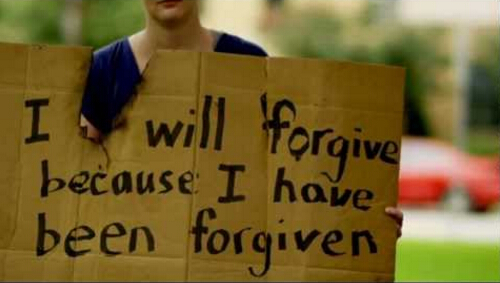
6. We all need forgiveness
When you put yourself in others’ shoes and accept the fact that you also make mistakes in your relationship with people, and you’ll inevitable need someone’s forgiveness, it’ll help you in your decision to forgive others. It doesn’t matter if you’re always nice to people—you’re not perfect—you’d somehow or another offend someone. So get over the offence and look from a vantage point of view.

7. Unforgiveness is toxic to your mental and physical health
It poisons your mind and thoughts. It affects your feelings and emotions. It even affects your body. Tom Jakes says, “Un-forgiveness is like eating poison and waiting for the other person to die.”
A study made by John Hopkins psychiatrist, Karen Swartz, reveals that when you choose to not forgive someone, it can lead you to irrational anger, which then puts you in a fight-or-flight mode, which results in numerous changes in heart rate, blood pressure and immune response.
Those changes, then, increase the risk of depression, heart disease and diabetes, among other conditions. Forgiveness, however, calm stress levels, leading to improved health.[ii]
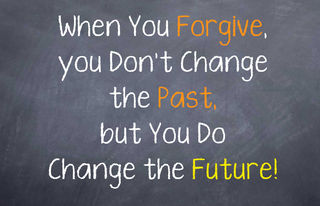
8. Your decision to not forgive will affect your future
Forgiveness is a release; it releases you from the bondage of being controlled by what other people did to you and how they made you feel.
Perhaps you’ve still decided that you will not forgive whoever has offended you for whatever they did. Let me try to paint the picture of how you might be feeling towards your offender: “You have this rage and resentment going on the inside of you that you wish they’d suffer terribly for how they treated you. You’re not happy when they are happy; however, you’re very happy when you see them unhappy. You just want to see them punished.
But when it turns out that they’re making progress in life, when they seem to be glowing with joy, you become bitter. You don’t want them to enjoy life the least bit.”
Now, this is a very prejudiced, irrational and immature place to be. As a matter of fact, as seen earlier, it’s very hazardous health wise to have this mind towards anyone. It makes them control your feeling, swaying it left and right, which could cause havoc to your mind.
They literally regulate your future life because they’re now in control of your mental state. Interestingly, they even control how you look, walk and move because there’s this hardness in your life that people can easily read from your face and demeanor. Don’t let people control your joy, inner peace and happiness. Choose to let go, release and forgive genuinely.
© 2018 Matthew Joseph








